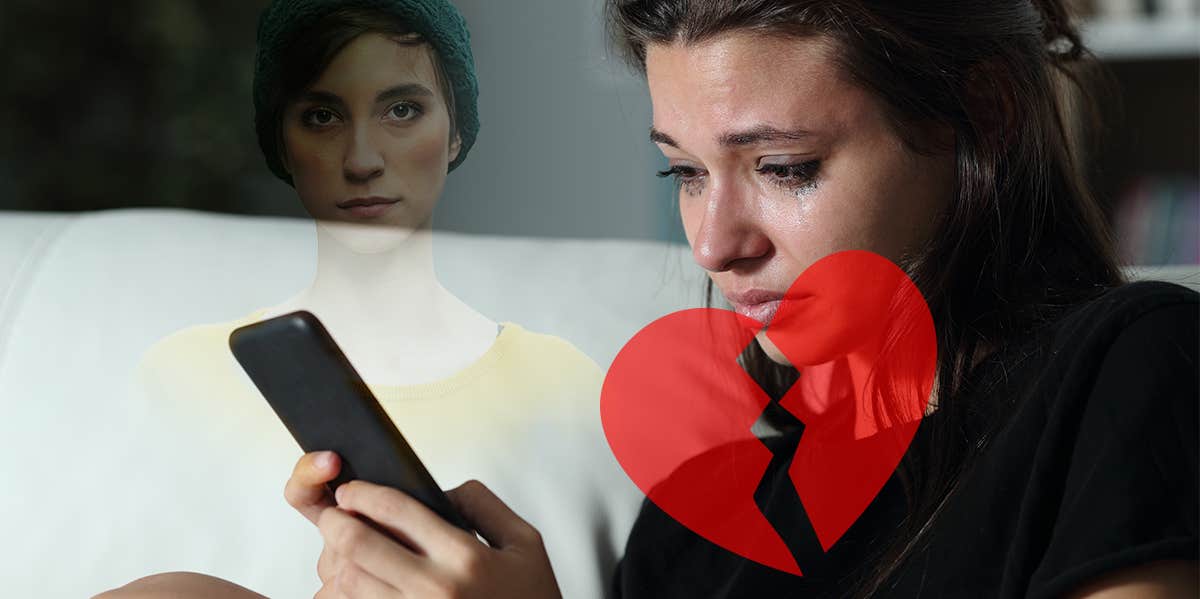Modern Dating Is A Cesspool Of Insensitive Behavior — Humanity Needs To Do Better
Being ghosted can have a particularly devastating effect on LGBTQIA+ people.
 Ground Picture | Antonio Guillem | Shutterstock
Ground Picture | Antonio Guillem | Shutterstock In an episode of Tales of the City, Elliot Page’s character Shawna — who for years has hooked up with girls that he neglects to ever call again — shares an emotionally and physically intimate night with Claire, during which the two open up about their complicated relationships with their mothers.
In the following weeks, Claire treats Shawna in a way that mirrors the latter’s typical treatment of the girls he hooks up with. For Shawna to be on the receiving end for the first time is both painful and eye-opening for him.
"I don’t open up to people like that," he laments — feeling almost swindled as he experiences, for the first time, the same hurt he’s inflicted on others.
This scene rings true in real life.
Dating, especially within the LGBTQIA+ community, can be emotionally brutal.
There’s plenty of callousness, abysmal communication, and colliding traumas out there in the quest to find love. The amount of ghosting, breadcrumbing and orbiting that take place is significant.
Pew Research has found that a majority of LGBTQIA+ adults (55 percent) report having used an online dating site or app, roughly twice the amount of straight adults (28 percent) report. Meanwhile, according to Psych Central, "research shows that 13 percent to 23 percent of people have been ghosted in the United States."
As the Gay Therapy Center aptly put it:
"Being ghosted can be particularly devastating for LGBTQ people. Most of us have grown up believing that this intimate, beautiful, and vulnerable part of us — our sexual attraction — is considered gross and shame-worthy. And so when we take the risk to open up and let someone in, our deepest wound can be triggered. It can touch on that unconscious, vulnerable part of ourselves that still believes that LGBTQ people are unlovable.
"While all minorities feel the stress of being devalued in the dominant culture, many LGBTQ people have the additional pain of being devalued in the intimacy of their own families. This kind of early rejection in life can make us extra vulnerable when dealing with the hurts of adult relationships."
Why can’t we do better and be better?
Why can’t we navigate the field more deliberately and mindfully, to minimize some of the messiness? I’ve often wondered. Some hurt is inevitable, but there are ways to decrease its likelihood.
We can state our boundaries, preferences and needs, for one.
We can stay aware of what we’re looking for and conscious of if and when it changes, communicating along the way.
We can be mindful of our own double standards. For instance, if we want an emotionally available person, it’s important we be emotionally available ourselves (or at least working towards it).
It’s hard to fall in healthy love if you’re not showing up as your highest version. Or if you’re seeking out a quality in another that you haven’t cultivated within yourself yet.
As Harriet Lerner phrased it in The Dance of Intimacy, "Intimacy can happen [only] after we work toward a more solid self, based on a clear understanding of our part in the relationship patterns that keep us stuck."
Dating could result in fewer hurt feelings and less strife if more of us engaged in it with mindfulness.
As the Gay Therapy Center put it, "Ghosting is avoidance driven by a fear of confrontation. We may tell ourselves that it is nicer not to tell someone that we don’t have chemistry … [but] in reality, being ghosted hurts a lot more than the truth."
Some might say this is taking too much responsibility for another person’s feelings. In the very beginning stages of dating, the only person we owe anything to is our own selves.
I just personally feel that greater overall consideration would take each of us closer to finding the person we’re compatible with physically, emotionally and mentally. It would do this by removing so much of the unnecessary crap and wasted time that often litter the road to getting there.
And I feel this way having been on both ends of the pendulum: that self-awareness and intentionality contribute to all-around better dating karma.
A review of Yung Pueblo’s book described his hope — that "as more of us heal, our actions will become more intentional, our decisions will become more compassionate, our thinking will become clearer, and the future will become brighter."
Dating is one realm through which we can practice this. Awareness of our own attachment style behaviors plays a key role in this.
Eleni Stephanides is a freelance writer and Spanish interpreter whose work has been published in Them, Tiny Buddha, Peaceful Dumpling, The Mighty, The Gay and Lesbian Review and Introvert Dear among others. She currently writes the monthly column "Queer Girl Q&A" for Out Front Magazine.
